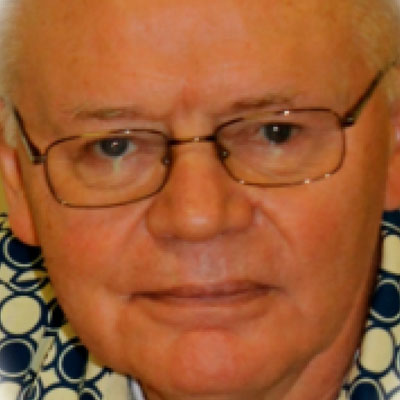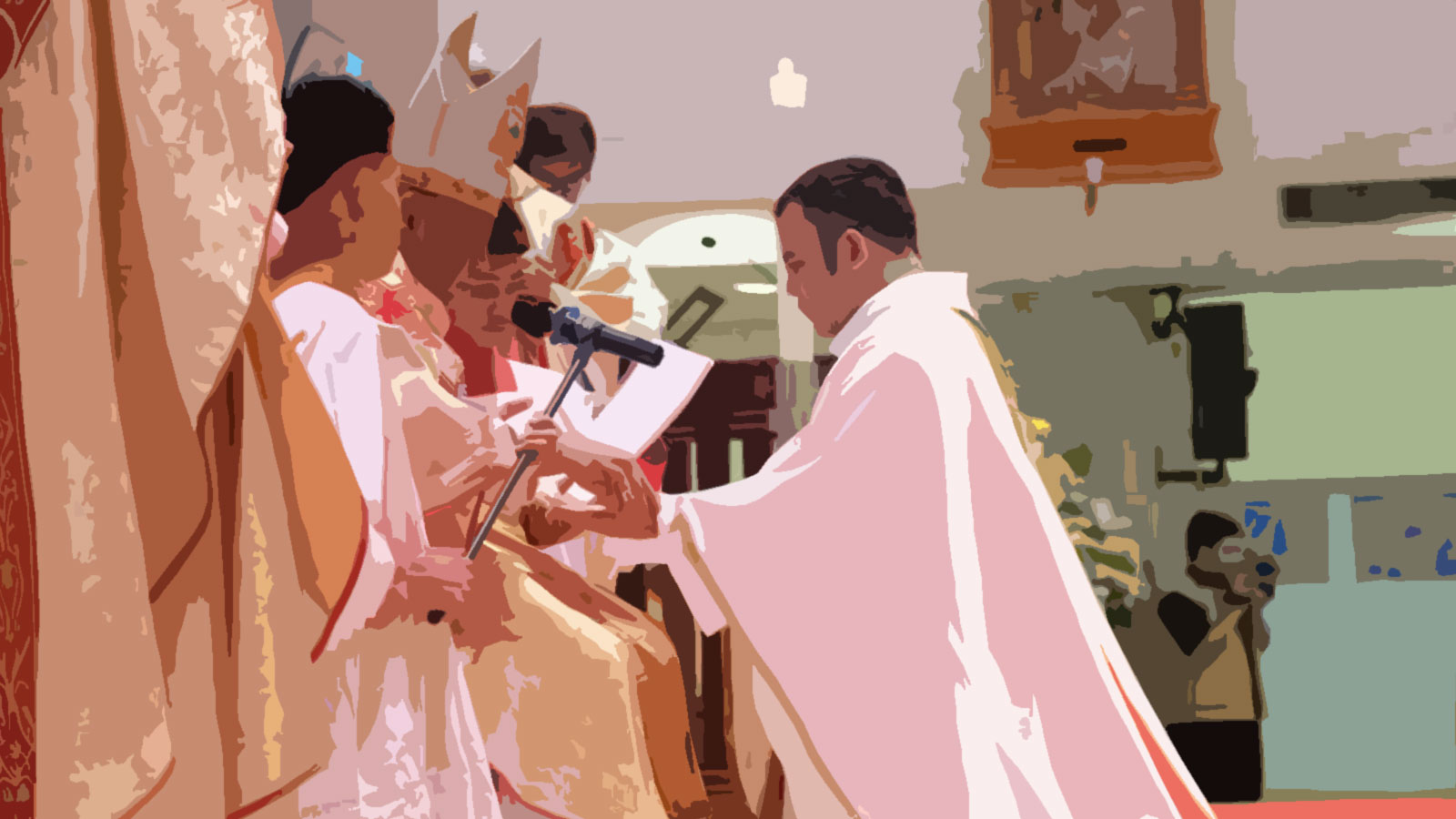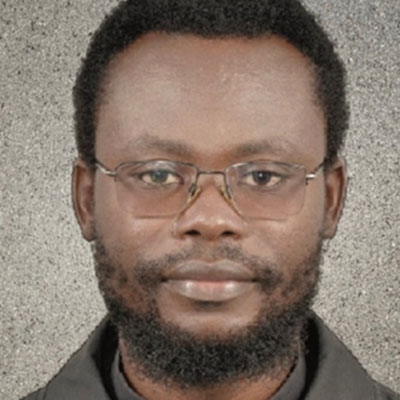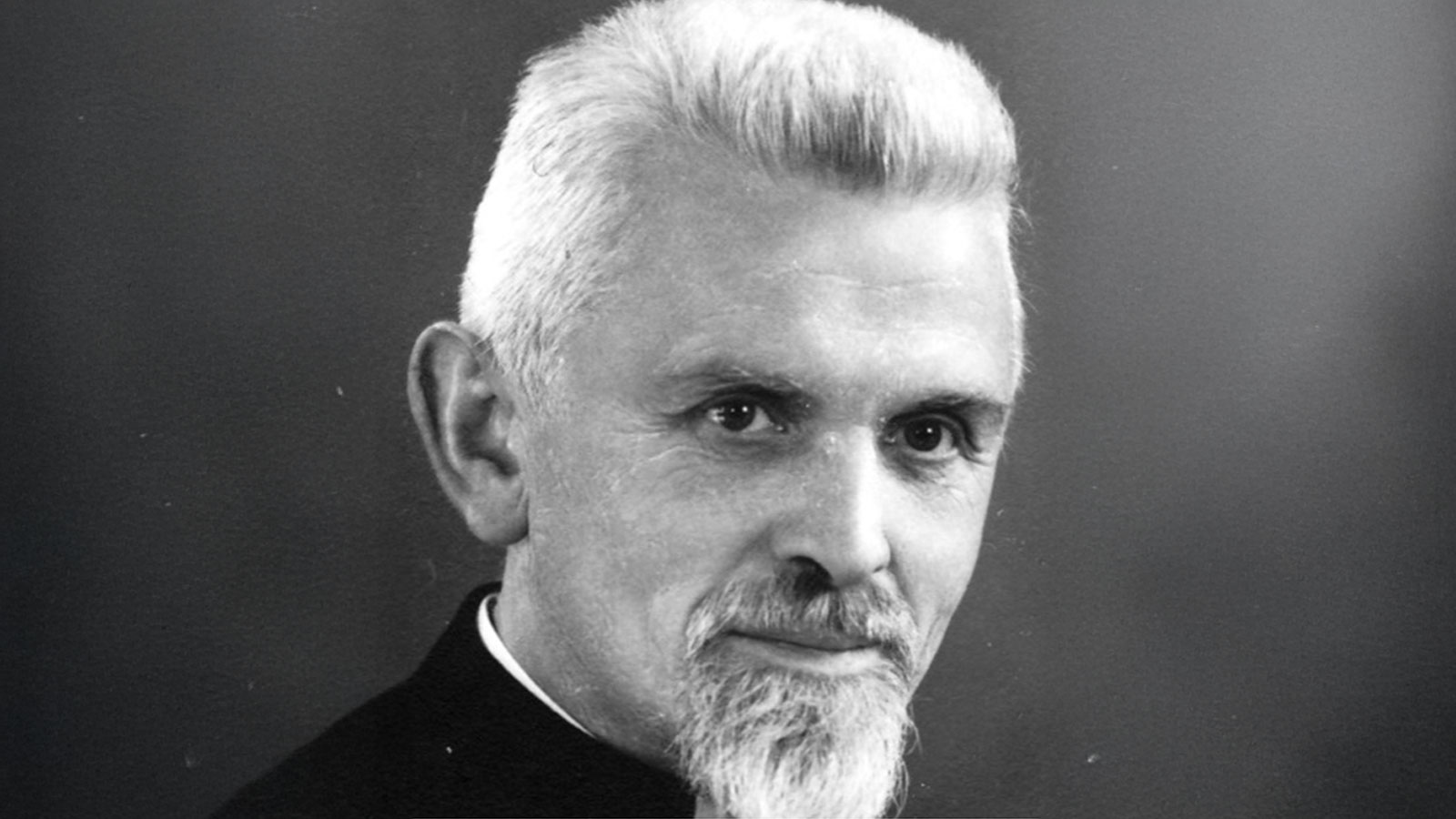 By Father Herman De Vriendt, cicm
By Father Herman De Vriendt, cicmSince I arrived in Senegal in November 1986, I felt that to be at ease “in my Father’s house” (the Church and Senegalese society), I should learn the Wolof language, otherwise I would stay in front the door of this ‘house’. Relying on Article 13.2 of our Constitutions that says “Integration requires that we know the language of the people we serve”, Together with confreres we looked for a suitable teacher and we found one at the Center for Applied Linguistics of Dakar (Dakar University), in the person of Jean Leopold Diouf, a researcher in Wolof. He helped me in my infancy to become a highly qualified expert.
Wolof is the first national language of Senegal. Despite the fact that only 40% of the population is ethnic Wolof, 85% of the population speaks that language.
After working two of us, I and Mr. Diouf, we saw that a group of ‘ Wolof secretaries’, could increase the productivity of the work. Thus in December 1990, we founded together with some youth of the parish of Diamaguène a working group. Mr. Diouf trained them in Wolof, a language they spoke well, but they could neither write nor describe it, meaning to say they could not explain its language structures.
Shortly after that, this working group was named Diisoo Wolof Project (PWD). ‘Diisoo is a Wolof word meaning “dialogue” we wanted to work consulting one another regularly.
That I may feel at ease “in my Father’s house” is a strong motivation to learn the language of the people to whom I am sent. But more important than my feeling is the people who welcomed me, especially the “little” people, those who have not had the chance to study and learn other languages. Thus the motto of our Wolof Project has become “ SO THAT THE LITTLE ONES MAY UNDERSTAND".
In view to respect the cultural heritage of the Senegalese people, the Diisoo Wolof project from the beginning of its existence (1990), has endeavored to promote the language by translating texts in Wolof. So it was an opportunity for Senegalese people to read and learn not from a foreign language but through a language that is specific to the local people.
With Pope John Paul II in his speech at the UN General Assembly to commemorate the 50th anniversary of its founding (October 5, 1995), we read: “Each nation has a ‘fundamental right to exist’, to ‘keep its own language and culture, by which a people expresses and defends what I would call his’ spiritual sovereignty’. “
With the group Wolof Project, we have worked and are still working on the translation and revision (retranslation 43 and rewriting in the spelling recognized by an official decree) of the biblical, liturgical, catechetical and pastoral texts. Previous missionaries had done a remarkable job. But the language evolves, therefore the need for a revision of the texts. In addition, catechetical and pastoral challenges of today are not those of thirty years ago.
After some years of existence, we also committed ourselves to training Women in several literacy centers. This is to reach out to young women who had not had the opportunity to go to school regularly. “In search of the little ones, so that they may understand!"
Following the previous steps, the Wolof Project has organized for years basic courses for foreigners: missionaries and development workers take in our centers a basic course of three months (December, January and February).
We notice that requests sent to Diisoo Wolof Project for intervention (oral or written) are increasing from year to year. Since four years ago the Apostolic Nuncio has requested us, on behalf of the Pontifical Council for Interreligious Dialogue, to translate the message to the Muslims for the end of Ramadan. We are asked to prepare liturgical texts on the occasion of ecclesial events, diocesan or national (pilgrimage, ordinations, jubilee etc.).
For presidential elections (February 26, 2012) several translation requests have arrived on our desk: the message to the nation on the occasion of New Year by the Archbishop of Dakar, Cardinal Theodore Adrien Sarr, the message of the Bishops Conference and interventions of the diocesan Commission for Justice and Peace to support Senegalese citizens in preparing for these elections.
And for three and a half years, the Diisoo Wolof Project, has embarked on TV shows. We, a group of ten people, broadcast twice a month (the second and fourth Sunday) a TV program of 55 minutes under the name “Laudemus Dominum” on RDV channel (= Dunyaa Radio Vision), entirely in Wolof.
This program is designed entirely in Wolof, prepared and conducted by Project: we write the script, distribute to the various presenters and rehearse with them, we do the recording, editing, movie rendering and DVD burning , which eventually is given to the RDV radio and television as a finished products. We operate as an “external production house.”
Note also that although the spoken Wolof is pervasive in society, the written language is not. That’s why our programs are accompanied with subtitles in Wolof: a kind of large-scale literacy.
Besides the choice of the form (the Wolof as language of communication), our program ‘Laudemus Dominum’ also wants to promote the cause of justice and peace through its content. This content is divided into three parts. In the first part, we present a word of the Sunday liturgy (2nd reading, which is not always developed in the homilies).
In the second part, we explain the social doctrine from Pope Benedict XVI’s encyclical “Caritas in veritate ‘, where he defends the poor, condemns unlimited capitalism, and advocates for environmental protection to safeguard our planet ‘Earth’. In the third part, entitled “Demb ak Tey” (meaning in Wolof for “Yesterday and Today”), we present recent or present events in the news. Besides the events of the local church, this part gives us the opportunity to present several programs such as “Africae Munus,” there is also the Post-Synodal Exhortation on the Church in Africa.
Does our message reach the “little ones? Quite Difficult to assess with sophisticated polls like in Europe. But word of mouth, we learn something regularly. As an example.
During a yearly reporting training session of Catholic journalists in Ziguinchor (Casamance - Senegal), the participants were sent to a village in the bush. Suddenly, a village woman recognized one of our news reporters at ‘Laudemus Dominum’ in Wolof, and called her friends. In an 45 instant our reporter was surrounded by a group of women, who began to sing in Wolof: “RDV ko moo yor,” which means: “Radio Dunyaa Vision is leading.” The reason for this fame was the exclusive use of Wolof.
Leaving the Police station for Foreigners, where I had my residence permit renewed for 2011, a woman recognized me and said: “Sir, I recognize you: it is you who are doing TV and radio programs in Wolof. I am Muslim, but that does not stop me from watching your Catholic programs on TV".
According to Cicm our constitutions, we are dedicated to the Incarnate Word. Article 12 mentions the letter to the Philippians 2, 6-7: “Jesus Christ emptied himself, taking the form of a slave, coming in human likeness “: He came so that we may understand. The Language is the royal door to enter “the house of our Father” and meet the people to whom we are sent, especially the little ones.
Wolof is the first national language of Senegal. Despite the fact that only 40% of the population is ethnic Wolof, 85% of the population speaks that language.
After working two of us, I and Mr. Diouf, we saw that a group of ‘ Wolof secretaries’, could increase the productivity of the work. Thus in December 1990, we founded together with some youth of the parish of Diamaguène a working group. Mr. Diouf trained them in Wolof, a language they spoke well, but they could neither write nor describe it, meaning to say they could not explain its language structures.
Shortly after that, this working group was named Diisoo Wolof Project (PWD). ‘Diisoo is a Wolof word meaning “dialogue” we wanted to work consulting one another regularly.
That I may feel at ease “in my Father’s house” is a strong motivation to learn the language of the people to whom I am sent. But more important than my feeling is the people who welcomed me, especially the “little” people, those who have not had the chance to study and learn other languages. Thus the motto of our Wolof Project has become “ SO THAT THE LITTLE ONES MAY UNDERSTAND".
In view to respect the cultural heritage of the Senegalese people, the Diisoo Wolof project from the beginning of its existence (1990), has endeavored to promote the language by translating texts in Wolof. So it was an opportunity for Senegalese people to read and learn not from a foreign language but through a language that is specific to the local people.
With Pope John Paul II in his speech at the UN General Assembly to commemorate the 50th anniversary of its founding (October 5, 1995), we read: “Each nation has a ‘fundamental right to exist’, to ‘keep its own language and culture, by which a people expresses and defends what I would call his’ spiritual sovereignty’. “
With the group Wolof Project, we have worked and are still working on the translation and revision (retranslation 43 and rewriting in the spelling recognized by an official decree) of the biblical, liturgical, catechetical and pastoral texts. Previous missionaries had done a remarkable job. But the language evolves, therefore the need for a revision of the texts. In addition, catechetical and pastoral challenges of today are not those of thirty years ago.
After some years of existence, we also committed ourselves to training Women in several literacy centers. This is to reach out to young women who had not had the opportunity to go to school regularly. “In search of the little ones, so that they may understand!"
Following the previous steps, the Wolof Project has organized for years basic courses for foreigners: missionaries and development workers take in our centers a basic course of three months (December, January and February).
We notice that requests sent to Diisoo Wolof Project for intervention (oral or written) are increasing from year to year. Since four years ago the Apostolic Nuncio has requested us, on behalf of the Pontifical Council for Interreligious Dialogue, to translate the message to the Muslims for the end of Ramadan. We are asked to prepare liturgical texts on the occasion of ecclesial events, diocesan or national (pilgrimage, ordinations, jubilee etc.).
For presidential elections (February 26, 2012) several translation requests have arrived on our desk: the message to the nation on the occasion of New Year by the Archbishop of Dakar, Cardinal Theodore Adrien Sarr, the message of the Bishops Conference and interventions of the diocesan Commission for Justice and Peace to support Senegalese citizens in preparing for these elections.
And for three and a half years, the Diisoo Wolof Project, has embarked on TV shows. We, a group of ten people, broadcast twice a month (the second and fourth Sunday) a TV program of 55 minutes under the name “Laudemus Dominum” on RDV channel (= Dunyaa Radio Vision), entirely in Wolof.
This program is designed entirely in Wolof, prepared and conducted by Project: we write the script, distribute to the various presenters and rehearse with them, we do the recording, editing, movie rendering and DVD burning , which eventually is given to the RDV radio and television as a finished products. We operate as an “external production house.”
Note also that although the spoken Wolof is pervasive in society, the written language is not. That’s why our programs are accompanied with subtitles in Wolof: a kind of large-scale literacy.
Besides the choice of the form (the Wolof as language of communication), our program ‘Laudemus Dominum’ also wants to promote the cause of justice and peace through its content. This content is divided into three parts. In the first part, we present a word of the Sunday liturgy (2nd reading, which is not always developed in the homilies).
In the second part, we explain the social doctrine from Pope Benedict XVI’s encyclical “Caritas in veritate ‘, where he defends the poor, condemns unlimited capitalism, and advocates for environmental protection to safeguard our planet ‘Earth’. In the third part, entitled “Demb ak Tey” (meaning in Wolof for “Yesterday and Today”), we present recent or present events in the news. Besides the events of the local church, this part gives us the opportunity to present several programs such as “Africae Munus,” there is also the Post-Synodal Exhortation on the Church in Africa.
Does our message reach the “little ones? Quite Difficult to assess with sophisticated polls like in Europe. But word of mouth, we learn something regularly. As an example.
During a yearly reporting training session of Catholic journalists in Ziguinchor (Casamance - Senegal), the participants were sent to a village in the bush. Suddenly, a village woman recognized one of our news reporters at ‘Laudemus Dominum’ in Wolof, and called her friends. In an 45 instant our reporter was surrounded by a group of women, who began to sing in Wolof: “RDV ko moo yor,” which means: “Radio Dunyaa Vision is leading.” The reason for this fame was the exclusive use of Wolof.
Leaving the Police station for Foreigners, where I had my residence permit renewed for 2011, a woman recognized me and said: “Sir, I recognize you: it is you who are doing TV and radio programs in Wolof. I am Muslim, but that does not stop me from watching your Catholic programs on TV".
According to Cicm our constitutions, we are dedicated to the Incarnate Word. Article 12 mentions the letter to the Philippians 2, 6-7: “Jesus Christ emptied himself, taking the form of a slave, coming in human likeness “: He came so that we may understand. The Language is the royal door to enter “the house of our Father” and meet the people to whom we are sent, especially the little ones.







